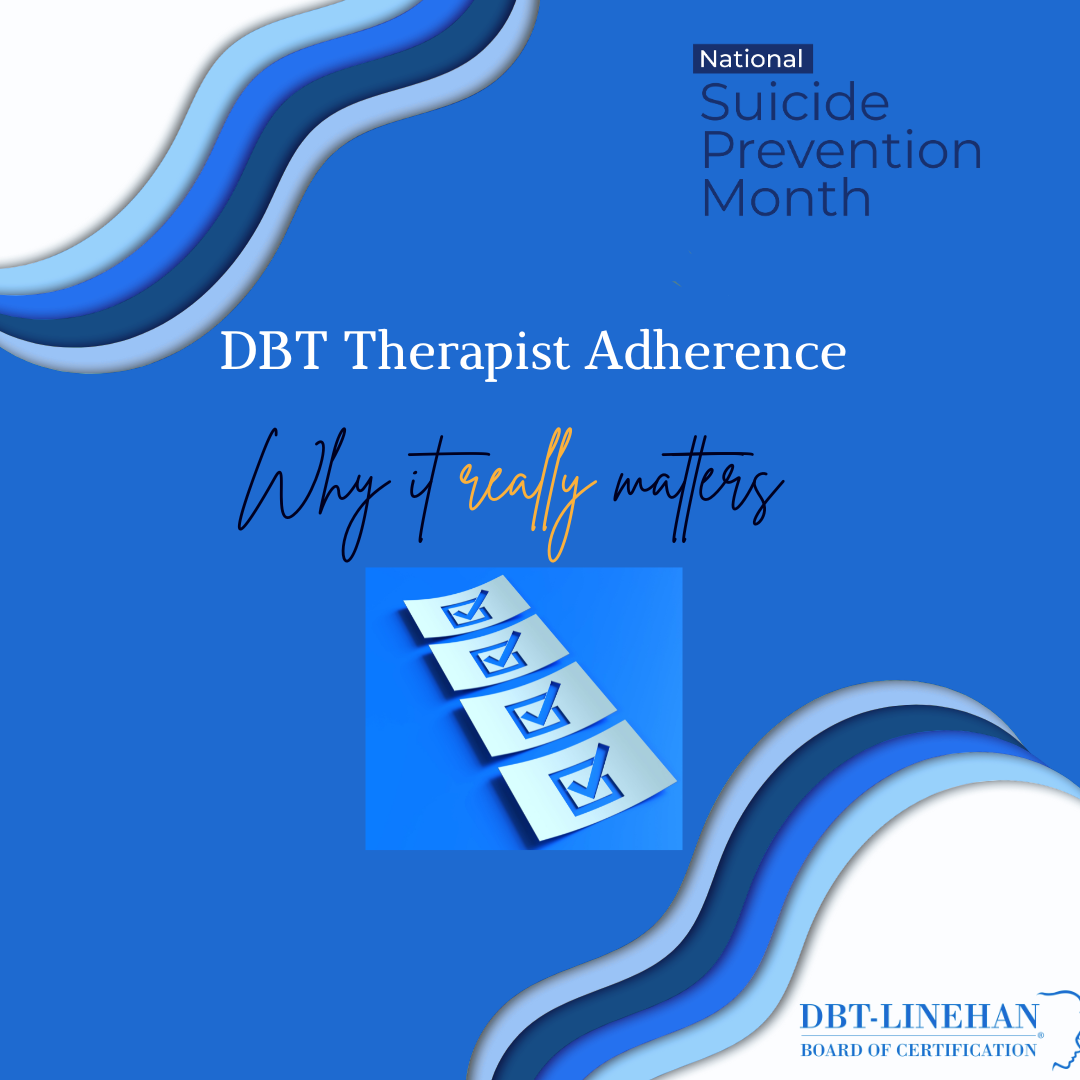DBT Therapist adherence – Why it really matters
September is National Suicide Prevention Awareness Month, so what better time to review the impact Dialectical Behavior Therapy has on reducing suicidal thoughts and urges? DBT was initially developed for suicidal clients and has rigorous research data supporting Dialectical Behavior Therapy (DBT) as an effective evidence-based treatment. We also know that adherent DBT programs yield the most significant patient outcomes.
What is less well known, based on the research, is whether therapist adherence influences patient outcomes.
In 2022, Harned and Colleagues published research on this very topic, looking at the temporal relationship between therapist adherence to DBT and patient outcomes. The study also reviewed if there were any moderators of those relationships.
What did they find?
Higher therapist adherence significantly predicted:
- Fewer subsequent suicide attempts
- Lower risk of dropout (strongest impact to those with co-occurring opioid dependence)
- Fewer subsequent hospitalizations (among community therapists) and for patients that were not exclusively suicidal/self-injuring
The study also found if patients have more frequent non-suicidal self-injury (NSSI) and had worse global functioning this predicted higher subsequent therapist adherence was also found when patients had more frequent non-suicidal self-injury (NSSI) as well as worse global functioning. This was moderated by patient population.
What does this mean?
Therapist adherence to DBT as it was designed to be delivered predicts fewer suicide attempts in their clients. This highlights the importance of delivering DBT with fidelity. The study also provides evidence that therapist adherence helps bolster patient retention. It also highlights that when working with patients presenting with higher severity, the model feels easier for therapists to deliver the adherently.
Where to go from here?
Suicide Prevention and Awareness month is an incredibly relevant time to share the link between therapist adherence to DBT and reduced suicide attempts, a lowered risk of dropping out, and fewer inpatient admissions. Would you like to assess you and your Consultation Team’s adherence to DBT? Consider reviewing the measures of adherence here
Access to Past Webinars:
DBT-LBC™ now offers access to past, high-quality educational webinars, designed to expand knowledge, strengthen skills, and support best practices in Dialectical Behavior Therapy.
Below are a few that align with Suicide Prevention Awareness Month; however, the entire library of webinars can be found
Blaise Aguirre, MD: Addressing the Care of Suicidal Adolescents: What Works and What Doesn’t
Michael Hollander, PhD: Understanding Self-Injury: A Webinar for Parents & Clinicians
This September, your support can save lives.
In honor of Suicide Prevention Awareness Month, we invite you to join us in our mission at DBT-LBC™ in connecting people in need with clinicians providing this life-saving treatment.
Every donation, no matter the size, directly supports our mission and helps ensure that individuals facing some of their darkest moments have access to the treatment they deserve. Together, we can make a difference.





